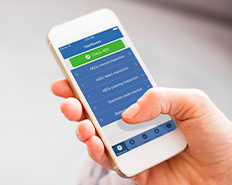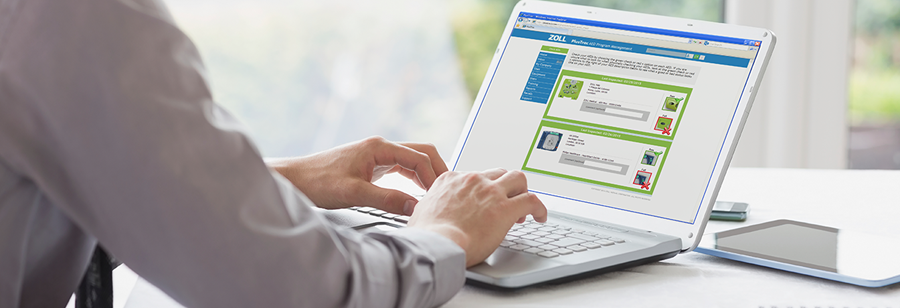PlusTrac AED Program Management
When someone suffers sudden cardiac arrest (SCA) on your watch, you need an automated external defibrillator (AED) and responders that are Rescue Ready®. No matter how large your AED organization, this interactive, web-based solution helps streamline administration and provides visibility to all facets of your program.
Stay on Track with PlusTrac
Volunteer responders come and go, certifications expire, and laws change. AED programs have many moving parts that need to be reviewed and evaluated regularly. PlusTrac® will remind you when it’s time to change out your AED pads and batteries and will even remind you to schedule your next training class, so you can be sure your rescuers are ready to respond with confidence in the event of a sudden cardiac arrest.
Actionable Reporting
Stay current on your program compliance with real-time reporting from your PlusTrac dashboard. Customizable reports can be downloaded or scheduled for automatic delivery, so you always know the status of your AEDs. Your dashboard will sync with CheckAED mobile inspection apps to give you current information from your field inspectors.
Roles to Encourage Collaboration
Keep track of your team’s work and progress with roles designed for collaboration: Site coordinators, inspectors, medical directors, and administrators can each find and access the areas of the software pertinent to their responsibilities. Notifications and reporting are relevant to their work.

Not at your desk? No worries. Easily perform AED inspections on the spot for each AED device at your facility with the CheckAED Mobile app.
- Access all the features of PlusTrac including your personalized dashboard
- Receive automatic alerts and notifications on your mobile device
- Use the QR code scanning capability to immediately and accurately find each device in your log
Rest Assured You Will Be Rescue Ready
- Streamlines program management through an easy-to-use web-based system
- Assists with policy and procedure development to keep your program compliant
- Identifies facility-specific response plans to help improve outcomes
- Takes care of time-consuming and costly activities like medical direction and agency notification
- Keeps you Rescue Ready with automated alerts, notifications, emails, and reports
- Supports you with post-event services should your AED be used for an event
Join thousands of program managers that rely on PlusTrac program management to keep their AED programs compliant and ready to help save lives. Start a 60-day trial today.
"I have enjoyed having a relationship with the AED program management team for many years in maintaining our company's 150 or so AEDs. Amber and the entire team have always been very responsive in helping us to maintain a state of readiness."
Scott Herndon, safety and health manager
Meridian Brick, LLC

